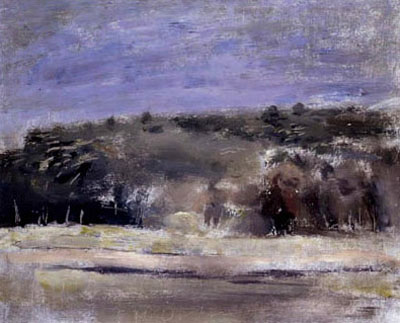
It was one of those moments, talking with Shuijing, here in graduate school from the capital of China . Always a sense of the distant place she comes from, even as she makes such an earnest effort to communicate. (To make things objective, share in common.) Late afternoon, ninth floor of Wurster Hall, wide bank of windows to the south, looking out over misty winter rooftops of Berkeley and Oakland, backlit by the sun. Beautiful light. Desks still unsettled--not yet inhabited--it's just the beginning of the term. A rucksack, computer gear, pile of books and notes. Shadow opening on concrete wall--the new seismic pour--a burnished gray expanse, maybe four-feet thick, heavily reinforced... and within, another shadow, someone you almost know...

